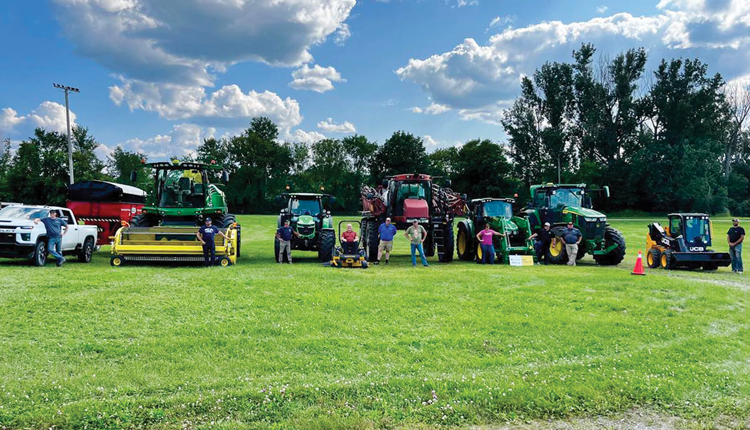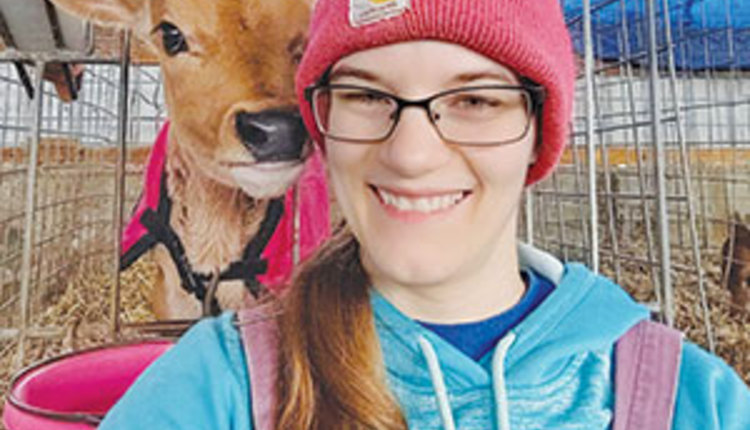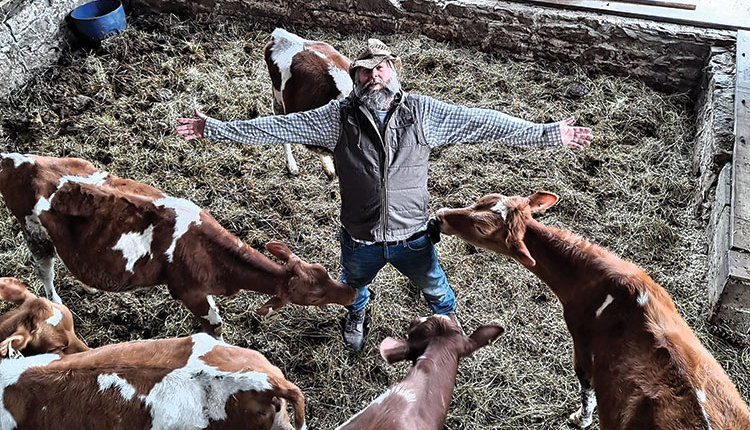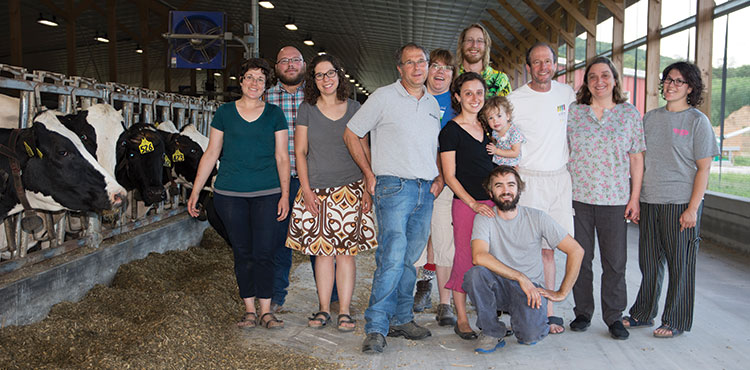
Sometimes the best ideas come from brainstorming around the kitchen table. For the Freund family in Connecticut, talking about the best way to utilize compost from the farm’s digester turned into CowPots LLC, an on-farm business that has grown and even thrived.
CowPots are planting pots made from cow manure, perfect for starting and growing seedlings and young plants, according to Amanda Freund. Her father, Matthew Freund, came up with the idea almost 20 years ago, knowing that cow manure is not only biodegradable but provides nutrients for young plants.
A multistep journey
The Freund family has operated a methane digester on their Connecticut dairy since 1997. Soon after building the digester, they realized they needed to rethink their nutrient flow. With plenty of compost on-site and limited on-farm use, brothers Matt and Ben Freund started looking at other ways to utilize the material.
Amanda said her mom, who operates a small farm market, would start plants in traditional peat pots and then transplant them in the ground but later discover the peat pots had not completely decomposed. Matt decided he could make a better product and started experimenting with different “recipes,” using the kitchen stove and a toaster oven. “This all came from the seed of an idea into an on-farm business,” Amanda said.
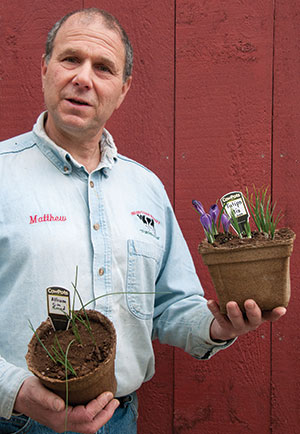
Amanda, who oversees sales and marketing of CowPots, said Matt would load pots into the minivan and drive from store to store. On a whim, they sent a video to Mike Rowe’s “Dirty Jobs” program in 2006 highlighting their process and were selected to be featured on the show.
“We never expected him to choose us,” Amanda said. “This was early in our production process . . . but you can’t say no to that kind of national exposure. The show was such a hit that our website crashed just from visitors to our site who had seen the show.”
The experience, she admits, was great but at the same time challenging. “We didn’t have a national retailer, we didn’t have a way to ship out pots to people who wanted them,” she said. “It created some growing pains. But I have no doubt that we wouldn’t be where we are today without being on ‘Dirty Jobs.’”
In the 10 years since the show aired, the episode still sparks interest, thanks to reruns. “A Finnish group was here just recently and had seen the episode the night before in the hotel,” she said.
Perhaps Mike Rowe ignited the interest in CowPots, but gardeners, growers, and farmers have long known the value of cow manure as fertilizer. To be able to plant a seed and then transplant it directly in the pot into the ground serves two purposes — a stable place for the plant to grow, then a fertilizer for the plant as it breaks down completely in the ground.
“Renewable energy is a big priority on our farm,” Amanda said. “In addition to operating the methane digester, we have more than 1,200 solar panels on our farm generating the electricity for our dairy and CowPots production.”
In 2014, CowPots became a stand-alone business as an LLC and has grown to be a self-supporting and economically viable business in its own right.
Amanda added the original intention in forming a CowPot was not with the end goal of added farm income.
“That may have been a desired outcome, but it was just a far-fetched idea, we were trying to prove it was possible,” she said. “The reason we started experimenting with forming a pot from our manure was primarily to meet environmental regulations. In order for us to maintain or slightly grow our herd of dairy cows, with our limited land base, we would need to find a way to export the manure,” said Amanda.
“Compost can only travel so far before it gets too costly to ship, but CowPots are light enough and formed in a way that we can stack them and pack them and ship them all over the country and into Canada (and even the EU).”
All the manure used in CowPots comes from their own farm. However, when production demands more fibers than they have on their farm, they have a working relationship with the neighboring farm to receive additional manure.
“One added benefit/synergy of our farm businesses is that my mother’s farm market/greenhouse gives us firsthand experience actually growing in our CowPots in a greenhouse setting and then reviewing actual decomposition once planted out in our field,” Amanda said. “It’s been a huge advantage to the development of the CowPots business to have access to a production greenhouse setup.”
Family members and employees help make all the businesses run smoothly, she noted. “Currently, the dairy farm employs six family members and one part-time almost retired gentleman who has been working for us for 54 years,” she said. Three full-time employees round out the dairy team.
In addition to Amanda, CowPots employs a production manager, general manager, and two employees. Her mother also owns and operates Freund’s Farm Market and Bakery, which maintains anywhere from 3 to 10 employees, depending on the season.
On-site production
CowPots are all produced on the farm, just a few hundred feet from the dairy barn. From the kitchen, Matt Freund moved to a prototyped machine he and a retired engineer designed in the farm’s shop. In late 2008, production moved into a dedicated building. Grant funding allowed them to invest in manufacturing equipment.
From the beginning, Amanda said her dad and uncle agreed they would not change any part of the dairy cow care to keep the manure consistent. “They said they weren’t going to feed more fiber, or change anything, and they wanted to be flexible enough to handle the changes in the manure management,” she said. “There are a lot of variables that result in ‘good’ manure, any farmer will agree.”
Like other small businesses, Amanda knows they need to work hard to expand their product sales beyond a niche market for biodegradable pots. “Planting pots and horticultural containers are a commodity, and there are other products on the market that look like ours,” she said. “We want to be able to engage with prospective customers to educate them about all the unique attributes of our pots.”
Sharing her family’s story to consumers has taken Amanda to trade shows, local events, schools, and other venues. “I look forward to continuing to share our farm’s story, promoting all the environmentally responsible things we’re doing as dairy farmers and land stewards,” she said. “The biggest challenge is telling our story to enough people . . . but once they find out about our product, they’re totally ‘in.’”







